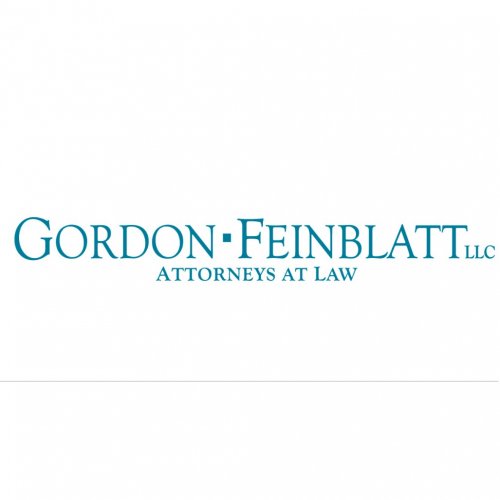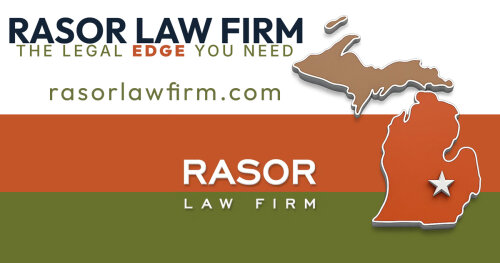Best Creditor Lawyers in Maryland
Share your needs with us, get contacted by law firms.
Free. Takes 2 min.
Or refine your search by selecting a city:
List of the best lawyers in Maryland, United States
About Creditor Law in Maryland, United States
Creditor law in Maryland governs the rights and remedies available to individuals and businesses owed money by debtors. The law establishes how creditors can legally pursue the collection of debts, what actions they can take if a debtor fails to pay, and the protections afforded to both parties. This area of law covers a range of issues, including debt collection practices, securing judgments, garnishing wages, placing liens on property, and working with bankruptcy proceedings. Creditor law in Maryland is designed to balance the rights of creditors to collect what is owed with protections to ensure debtors are treated fairly under the law.
Why You May Need a Lawyer
There are several common scenarios where seeking legal guidance from an attorney experienced in creditor law may be necessary in Maryland:
- If you are a business or individual struggling to recover money owed from a customer or client who refuses to pay.
- If you are navigating complex debt collection regulations and want to ensure that your actions comply with both Maryland and federal law.
- If you are seeking to enforce a judgment, garnish wages, or place a lien on a debtor's property.
- If a debtor files for bankruptcy and you need to protect your interests as a creditor in bankruptcy court.
- If you are accused of violating debt collection laws or are facing a counter-claim from a debtor.
- If you want to draft or review credit or loan agreements to prevent future issues.
An attorney can help you understand your rights, develop an effective collection strategy, represent you in court, and ensure compliance with the law.
Local Laws Overview
Maryland has several important statutes and regulations that govern creditor rights, debt collection, and related practices. The key aspects include:
- Maryland Consumer Debt Collection Act (MCDCA) - This law prohibits creditors and collectors from using abusive, unfair, or deceptive practices when collecting debts from Maryland residents.
- Maryland Collection Agency Licensing Act (MCALA) - Collection agencies doing business in Maryland must be properly licensed under this act.
- Statute of Limitations - Maryland generally allows creditors 3 years to file a lawsuit for most contract debts, though some written contracts and judgments have a 12-year limit.
- Wage Garnishment - State law limits the amount creditors can garnish from a debtor's wages, typically no more than the lesser of 25 percent of disposable earnings or the amount by which weekly earnings exceed 30 times the federal minimum wage.
- Exemptions - Maryland law provides certain property exemptions that protect debtors from losing all assets, such as primary residences (homestead exemption), some personal property, and tools of the trade.
- Judgment Liens - Creditors who win a court judgment may place a lien on a debtor's real property located in Maryland.
- Bankruptcy Proceedings - Creditors may file claims in federal bankruptcy court and must follow automatic stay rules, which temporarily prevent collection efforts once bankruptcy is filed.
Frequently Asked Questions
What is the statute of limitations for debt collection in Maryland?
For most contracts and open accounts, the statute of limitations is 3 years from the date the debt became due. For written contracts under seal or judgments, it can be up to 12 years.
Can a creditor garnish my wages in Maryland?
Yes, after obtaining a judgment, creditors may garnish wages, but state law limits how much can be taken. Generally, up to 25 percent of disposable earnings, or the amount over 30 times the federal minimum wage per week, whichever is less.
Do creditors need to be licensed to collect debts in Maryland?
Collection agencies must be licensed by the Maryland Department of Labor to legally collect debts in the state. Original creditors generally do not need a license.
What actions are prohibited under the Maryland Consumer Debt Collection Act?
Creditors and collectors are prohibited from harassing, threatening, or using misleading statements when attempting to collect debts. This includes threats of violence, using obscene language, or falsely implying legal consequences.
What property is exempt from creditors in Maryland?
Maryland law exempts certain assets from creditor seizure, including a portion of home equity (homestead exemption), limited value of personal property, retirement benefits, and some income sources such as social security.
How can a creditor enforce a court judgment in Maryland?
After obtaining a judgment, creditors can pursue enforcement through wage garnishment, bank account attachment, or placing liens on property. Legal procedures must be strictly followed.
What happens if a debtor files for bankruptcy?
Filing for bankruptcy triggers an automatic stay, temporarily halting most collection actions. Creditors must file a claim in bankruptcy court and may receive only a partial repayment, depending on the type of bankruptcy and available assets.
Can interest and fees be added to the original debt amount?
Yes, but only if allowed by the original contract and within legal limits set by Maryland law. Courts may review and adjust unreasonable or excessive fees.
Can creditors contact me at work or after certain hours?
Collectors are prohibited from contacting debtors at unreasonable times or places, including work if they know your employer disapproves. Calls before 8 am or after 9 pm are generally considered unlawful.
What should I do if I am being sued by a creditor in Maryland?
It is important to respond promptly to any court summons. Ignoring the lawsuit can result in a default judgment. Consider consulting a lawyer immediately to discuss your options and possible defenses.
Additional Resources
If you need more information or support regarding creditor law in Maryland, the following resources and organizations can be helpful:
- Maryland Department of Labor - Licensing and oversight of collection agencies
- Maryland Attorney General's Consumer Protection Division - Handles complaints about debt collection practices
- Maryland Judiciary - Provides information on court processes, forms, and self-help resources for civil cases
- Legal Aid Bureau of Maryland - Offers free or low-cost legal assistance to eligible individuals
- Local Bar Associations - Can provide lawyer referral services for consulting with a creditor law attorney
Next Steps
If you are facing a creditor issue in Maryland and need legal assistance, consider the following steps:
- Gather documentation related to your claim, such as contracts, payment records, communication with the debtor, and any court notices or correspondence.
- Determine whether the debt is within the statute of limitations and if all collection procedures have been properly followed.
- Contact a qualified attorney experienced in creditor law for a consultation. Many lawyers offer initial consultations where you can discuss your options and likely outcomes.
- If you cannot afford an attorney, reach out to legal aid services or your local bar association for possible pro bono assistance or referrals.
- Stay informed about your rights and obligations under Maryland law to avoid jeopardizing your ability to collect or respond to creditor actions.
Timely legal advice can be crucial in creditor matters, whether you are trying to collect a debt, defend against a claim, or navigate complex laws and regulations. Do not hesitate to seek help if you are unsure about your next steps.
Lawzana helps you find the best lawyers and law firms in Maryland through a curated and pre-screened list of qualified legal professionals. Our platform offers rankings and detailed profiles of attorneys and law firms, allowing you to compare based on practice areas, including Creditor, experience, and client feedback.
Each profile includes a description of the firm's areas of practice, client reviews, team members and partners, year of establishment, spoken languages, office locations, contact information, social media presence, and any published articles or resources. Most firms on our platform speak English and are experienced in both local and international legal matters.
Get a quote from top-rated law firms in Maryland, United States — quickly, securely, and without unnecessary hassle.
Disclaimer:
The information provided on this page is for general informational purposes only and does not constitute legal advice. While we strive to ensure the accuracy and relevance of the content, legal information may change over time, and interpretations of the law can vary. You should always consult with a qualified legal professional for advice specific to your situation.
We disclaim all liability for actions taken or not taken based on the content of this page. If you believe any information is incorrect or outdated, please contact us, and we will review and update it where appropriate.
Browse creditor law firms by city in Maryland
Refine your search by selecting a city.











